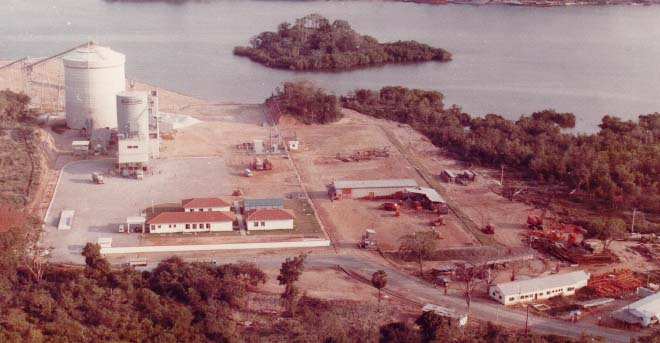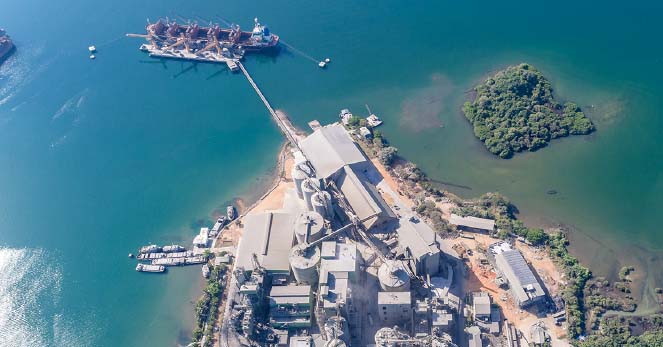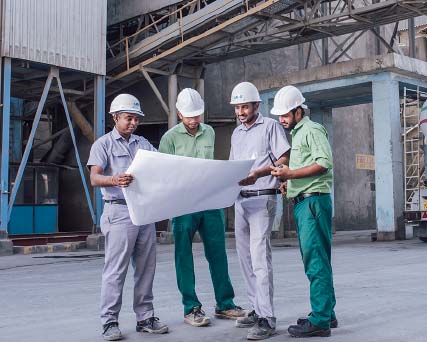Filtered Press Release : 2023 Feb

Tokyo Cement Group and the Police Department Join Forces for a Greener Future
Tree planting events held in Ududumbara and Minipe Mahaweli catchment areas The Tokyo Cement Group recently joined forces with the Sri Lanka Police Department to host two successful tree-planting events in Handaganawa in Minipe and Meedumgama in Ududumbara. Over 600 participants, including state and local government employees, farming communities and school children, came together to …
Tree planting events held in Ududumbara and Minipe Mahaweli catchment areas
The Tokyo Cement Group recently joined forces with the Sri Lanka Police Department to host two successful tree-planting events in Handaganawa in Minipe and Meedumgama in Ududumbara. Over 600 participants, including state and local government employees, farming communities and school children, came together to plant 7,000 saplings of diverse local plant species such as Kumbuk, Jackfruit, Damba, Ingini, Laolu (Egg Fruit), Mango, Tamarind, Mee, and Bulu (Bedda Nut), in the Mahaweli catchment areas.
The events were sponsored by Tokyo Cement Group with the objective of restoring the region’s natural ecosystem, whilst fostering environmental stewardship among local communities. The Company envisions creating a forest belt comprising of native flower and fruit-bearing trees that benefit local farming culture and boost natural biodiversity, whilst preventing soil erosion in the riverbanks. Through this long-term engagement Tokyo Cement anticipates the participating community groups and school children to become patrons of the trees, until such time they become an intrinsic part of the Mahaweli catchment areas.
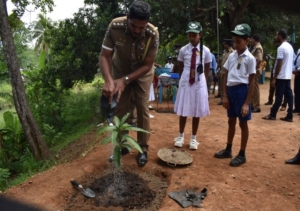
Officers and staff of the Sri Lanka Police Department attached to the Hasalaka and Ududumbara Police Divisions, under the aegis of the Central Province DIG Office were instrumental in organizing these tree planting programs, ensuring the participation of all state institutions and schools in each area. This collaboration between the Sri Lanka Police Department and Tokyo Cement Group strengthens the collective efforts to create a greener, healthier environment for our future generations.
The first of the two collaborative tree-planting events was held in the Hadaganawa region of the Mahaweli catchment area and was organized by the Hasalaka Police Division. 6,100 native tree saplings were planted along the river reserve with the participation of over 100 police officers and representatives from the Department of Forest Conservation, Department of Wildlife Conservation, Department of Irrigation, Minipe Divisional Secretariat, Minipe Pradeshiya Sabha, and over 200 students from Hadaganawa Maha Vidyalaya and Morayaya Maha Vidyalaya.


The second event was held in Meedumgama, in the Ududumbara region of the Mahaweli river catchment area and was organized in association with the Ududumbara Police Division. The event brought together over 200 participants, including officers from the Hunnasgiriya Range Office of the Department of Forest Conservation, Department of Wildlife Conservation, Ududumbara Divisional Secretariat, and Ududumbara Pradesiya Sabha. Additionally, over a hundred students from the Ududumbara National School also participated in the tree planting program helping to enhance its impact.
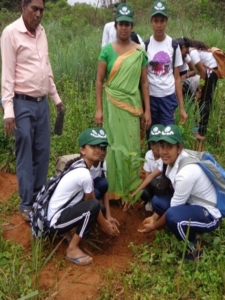
The Tokyo Cement Company launched this keystone sustainability initiative to replenish Sri Lanka’s declining forest cover in 2017, by establishing two native forest tree nurseries: one at the Trincomalee Factory and the other at the Mahiyangana Power Plant premises. Each nursery has the capacity to produce 10,000 native forest tree seedlings annually, that gets distributed for island-wide reforestation campaigns carried out by various state and independent conservationist groups.
In addition to forest tree propagation, Tokyo Cement Group leads several scientific knowledge-based conservation efforts as part of its sustainability drive. Among the most impactful conservation programs spearheaded by The Company, Mangrove and Coral Reef Conservation take center stage. Tokyo Cement Group started its Mangrove Conservation Project in 2012 by setting up a mangrove nursery that can nurture 10,000 seedlings within its factory premises. The initiative has so far planted more than 77,000 mangrove saplings belonging to 7 native species along Trincomalee, Jaffna and Mannar coastal belts in collaboration with the Sri Lanka Navy, supported by local fishing communities and likeminded conservation groups. Next, Tokyo Cement Group is deeply involved in Coral Reef Conservation for over a decade, leading a consortium of partners comprised of renowned marine biologists and conservation experts, actively involved in restoring the severely threatened reef barrier around Sri Lanka.
The company’s promise on sustainability breathes life through these far-reaching initiatives that successfully integrate social welfare and environmental conservation within its corporate mission that aims to enrich our country, its people, and the environment.
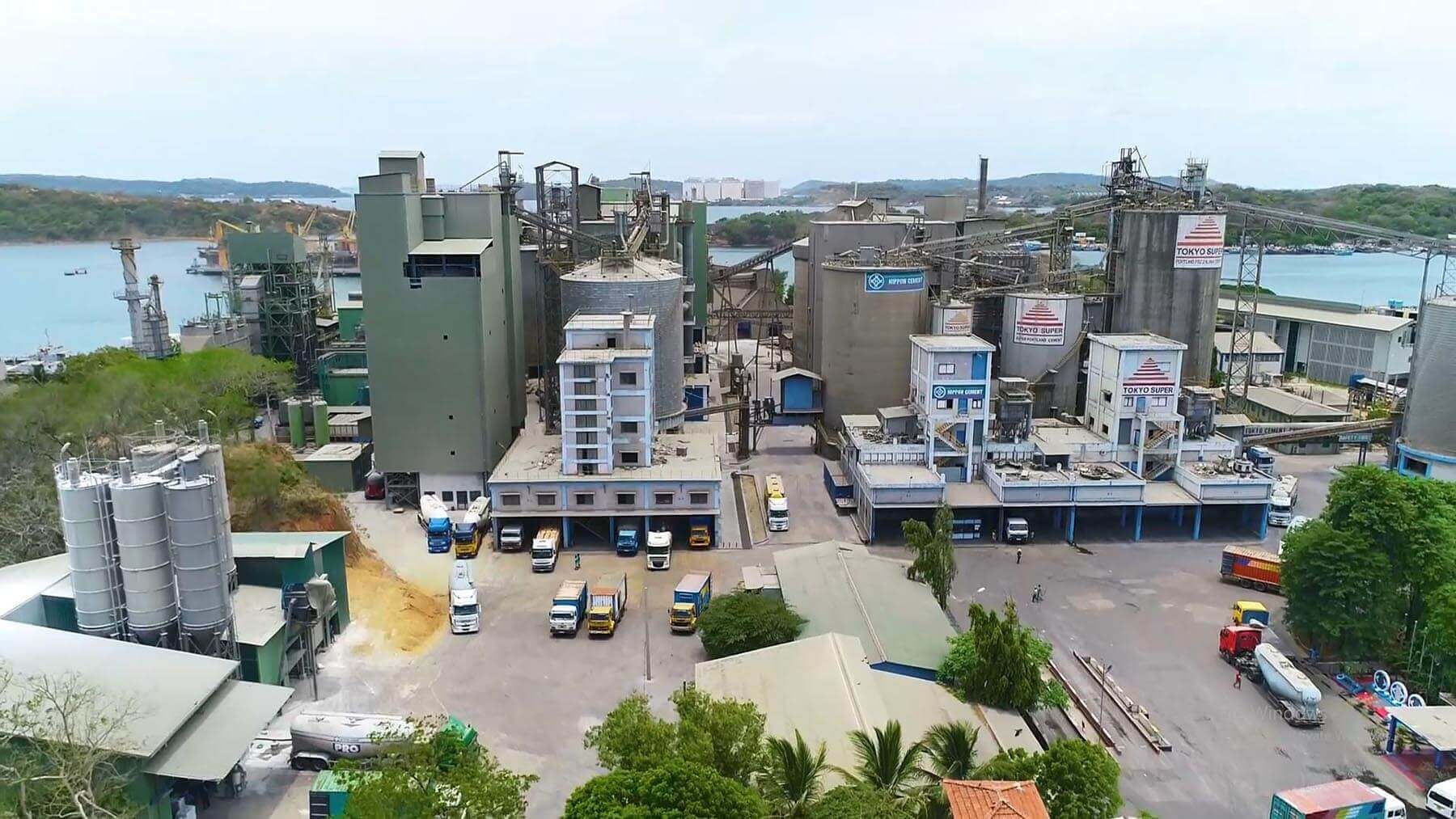
Tokyo Cement Weathers Economic Stagnation in FY23 3rd Quarter with Prudent Cost Management
Financial Review Tokyo Cement Group (Tokyo Cement) reported its financial performance for the 3rd quarter that ended on 31st December 2022, with a turnover of Rs. 12,079 million reflecting a year-on-year decline of 12%. The Group recorded a profit of Rs. 559 million for Q3 FY2022/23, compared to a profit of Rs. 1,649 million in …
Financial Review
Tokyo Cement Group (Tokyo Cement) reported its financial performance for the 3rd quarter that ended on 31st December 2022, with a turnover of Rs. 12,079 million reflecting a year-on-year decline of 12%.
The Group recorded a profit of Rs. 559 million for Q3 FY2022/23, compared to a profit of Rs. 1,649 million in the corresponding period in 2021.
Group turnover for the 9 months ending on the 31st of December 2022 was Rs. 42,396 million reflecting a year-on-year growth of 17%. The Group recorded a Rs. 4,269 million Profit After Tax (PAT) for the 9 months of the Financial Year thus far. This PAT is arrived upon after provisioning for income tax and deferred tax as per the newly enacted Inland Revenue (Amendment) Act, No. 45 of 2022.
Finance expenses surged from Rs. 427 million to Rs. 4,844 million year-on-year, attributed to considerable exchange losses and increased borrowing costs. An average interest rate of 30% was incurred across short-term borrowings to finance the raw material imports on Letters of Credit. The Group anticipates the newly announced 30% corporate income tax for manufacturing companies which came into effect on 1st October 2022 to further impact its financial performance for the year.
Exchange loss for the Financial Year thus far stands at Rs. 3,789 million. The Group was negatively impacted by a total exchange loss of Rs. 8,848 million accumulated over the course of the calendar year. Aggressive cost management policies and efficiency improvements deployed by the Company to control operational, marketing, and overhead costs helped soften the blow of this exchange loss to some extent.
Due to limited availability of foreign exchange to import raw materials and the stagnation of the construction industry, the plants were running at reduced capacity utilization levels thus contributing to a reduction in operational costs. Consequently, cement imports reduced by 48% between 2021 to 2022, whilst local cement production reduced by 29%, and overall cement consumption reduced by 36%.
The Environment
The demand for all construction materials including cement continued to decline over consecutive quarters of the year, as a result of overall shrinkage across all forms of consumption. With the cost of capital steadily rising most construction projects halted ongoing work whilst others postponed the commencement of new projects indefinitely. This event endangers the livelihoods of approx. 650,000 direct and 600,000 indirect jobs related to the construction industry. The primary concern of the sector was the approx. Rs.350 billion worth of payments outstanding from the government, which culminated in many construction companies getting blacklisted by banks for nonpayment and in some instances in foreclosure of machinery, plant and property.
Foreign exchange liquidity in the domestic banking system recorded some improvements during the quarter with a slow yet steady inflow of export proceeds and workers’ remittances. The influx of foreign exchange from tourism and hospitality sectors started to show promise with the onset of the season and is set to improve further during the upcoming months.
Tight fiscal controls deployed by the Central Bank of Sri Lanka (CBSL) with strict import regulations helped improve the country’s foreign reserves resulting in the Rupee to the US Dollar rate stabilizing at around Rs. 371-372 mark. This contributed to the reduction of the price of essential goods including fuel and LP Gas.
The Monetary Board of the CBSL decided to maintain the Standing Deposit Facility Rate (14.50%) and the Standing Lending Facility Rate (15.50%) at their current levels. Consequently, the headline inflation, as measured by Colombo Consumer Price Index (CCPI) on a y-o-y basis decreased to 57.2% in December from 69.8% in September 2022.
The cement industry absorbed the 3% increase of Value Added Tax (15% overall) from the 1st of September, and the 2.5% Social Security Contribution Levy from the 1st of October 2022, instead of transferring them on to the consumer. Furthermore, local cement manufacturers reduced the price of a 50kg bag of cement on three occasions during the quarter in relation to the gradual decline of costs. As such, the price of a 50kg bag of cement was reduced from Rs. 3,100 in October to Rs. 2,950 in November, and finally to Rs. 2,750 in December, reflecting the marginal decrease in global freight charges and production costs.
Outlook
With the expected financial bailout package from the International Monetary Fund (IMF) getting pushed further to mid-2023 the pressures on daily life reached new heights. Indicative of the financial situation of the country, Fitch downgraded Sri Lanka’s long-term local-currency debt rating from “CCC” to “CC”, citing probable local-currency debt default as a result of high interest costs and tight domestic financing conditions.
The Department of Census and Statistics has recorded the overall rate of inflation as decreasing over the course of the 3rd quarter; however, this sentiment was not reflected in the real market prices of goods and services.
The Government continued implementing key policy reforms advocated by the IMF with the objective of restructuring state income and expenditure. As part of this restructuring, significant income tax increases were implemented, whilst utility tariff hikes are also being proposed for the new year.
A Gazette notification was issued by the Election Commission of Sri Lanka during the last week of December in preparation of conducting Local Government Elections during the first quarter of 2023, with a more recent announcement declaring the date as 9th March 2023.
However, cement demand is not expected to change the present downward movement in the short to medium term, considering the rapidly shrinking economic environment. As the largest and most diversified local cement and concrete manufacturer, Tokyo Cement will strive to safeguard the positive financial momentum by applying strict cost containment measures, whilst continuing to fulfil its stakeholder commitments through its vast value creation process.
—
Archive
| 2025 | Jan | Feb | Mar | Apr | May | Jun | Jul | Aug | Sep | Oct | Nov | Dec |
| 2024 | Jan | Feb | Mar | Apr | May | Jun | Jul | Aug | Sep | Oct | Nov | Dec |
| 2023 | Jan | Feb | Mar | Apr | May | Jun | Jul | Aug | Sep | Oct | Nov | Dec |
| 2022 | Jan | Feb | Mar | Apr | May | Jun | Jul | Aug | Sep | Oct | Nov | Dec |
| 2021 | Jan | Feb | Mar | Apr | May | Jun | Jul | Aug | Sep | Oct | Nov | Dec |
| 2020 | Jan | Feb | Mar | Apr | May | Jun | Jul | Aug | Sep | Oct | Nov | Dec |
| 2019 | Jan | Feb | Mar | Apr | May | Jun | Jul | Aug | Sep | Oct | Nov | Dec |
| 2018 | Jan | Feb | Mar | Apr | May | Jun | Jul | Aug | Sep | Oct | Nov | Dec |
| 2017 | Jan | Feb | Mar | Apr | May | Jun | Jul | Aug | Sep | Oct | Nov | Dec |



